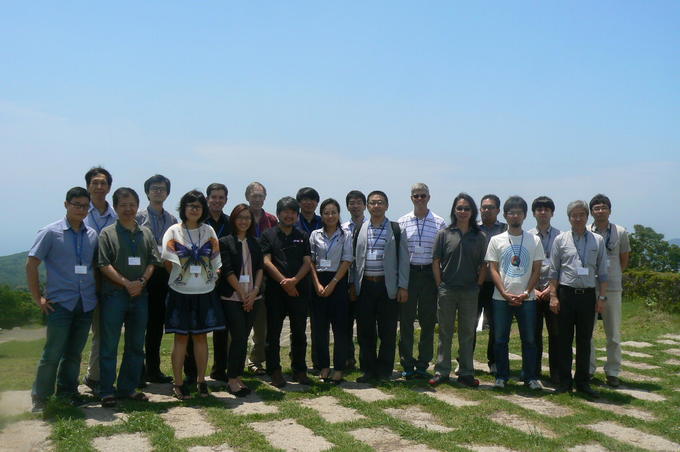NO.051 Water Disaster Management and Big Data
July 7 - 10, 2014 (Check-in: July 6, 2014 )
Organizers
- Fang-Pang Lin,
- National Center for High-Performance Computing (NCHC), National Central University, Taiwan
- Philip M. Papadopoulos
- San Diego Supercomputer Center, USA
- Satoshi Sekiguchi
- National Institute of Advanced Industrial Science and Technology, Japan

Overview
Description of the meeting
Topics and Goals
The water disaster management challenge was recently articulated at PRAGMA 22 (Sapporo) by Kenzo Hiroki (ICHARM, http://www.icharm.pwri.go.jp/staff/staff_hiroki.html, Research Coordinator for Water Disaster Risk Management). Within the PRAGMA community there have been many experiences with flooding and mudslides (Taiwan’s Hsiao-Lin Village during Typhoon Morakot (2009); Thailand’s flooding in September 2011; flooding in Australia; …), and some projects to attempt to address aspects of preparedness (Taiwan’s flood grid; AIST GEOGrid). Following this background, this meeting will bring together communities from water disaster management and big data and cyberinfrastructure communities to address shared problems, and develop approaches to tackle water disaster problems found in common across these areas. Furthermore, in line with PRAGMA’s mission and its more than ten years of practice, the intent is to establish sustainable research collaboration between various communities.
Topics of the Meeting
Water disasters include flooding from typhoon, seasonal storms and other natural or man-made causes, usually coupling with land, mud-slides and often occur without warning. Water disaster management is a challenge that faces many parts of the world. Big data emerges as a new opportunity for prediction and decision support. Using water disaster management as a specific disaster management application, the goal of this meeting is to bring together an interdisciplinary community of researchers, practitioners, and developers to explore current and future challenges identified by planners and responders that require research, development or deployment of big data and cyberinfrastructure solutions.
The topics will include:
1.) Water disaster events and mitigation practices
2.) High frequency sensor networks and fast response.
3.) Remote sensing and aerial imaging
4.) Flood and land sliding modeling
5.) Crowd sourcing and data mining for water disaster management.
6.) Tera- and Peta- scale data infrastructure
7.) Configurable and high availability networking
Goals of the Workshop
Structure of Workshop:
We anticipate a series of presentations, increasingly technical, to provide examples of the needs of individuals and groups responsible for anticipating, planning for, and responding to natural disasters caused by water. We plan to have individuals from several countries present scenarios where there are technical challenges. We anticipate that there will be a dialog between individuals and groups planning or responding to aspects of disasters and individuals who can understand and ask questions to clarify technical aspects of the challenges. Out of that discussion we hope to classify challenges as long term (research: there are basic questions for which there are no existing solutions), medium term (development: most of the technologies are developed but need to be integrated or tested or modified) and short term (deployment: (affordable) solutions exist).
Goals of Workshop:
The workshop will produce a report for the community. We plan to achieve the following goals in water disaster management and big data:
a) generate possible research opportunities for funding agencies (such as JSPS or NSF);
b) create some personnel connections between participants;
c) develop funding proposals to further ideas from the workshop; and
d) in the PRAGMA Context establish a working group or new expedition to prototype solutions, in collaboration with groups with the needs.
